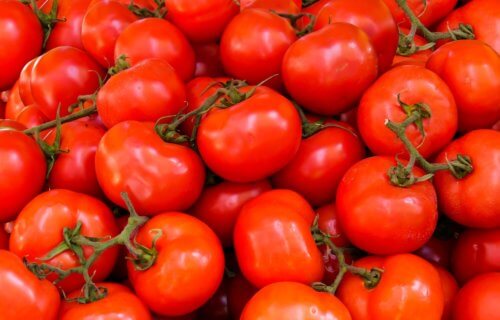NORWICH, United Kingdom — What if the next trip you take to the pharmacy is actually a walk through the local produce market. Researchers in the United Kingdom have devised a way of turning tomatoes into an inexpensive source of the Parkinson’s drug Levodopa, or L-DOPA. They say genetically modifying foods to produce sometimes costly medications can help scientists treat more patients in regions where pharmaceutical drugs are hard to get.
A team from the John Innes Centre says tomato plants can serve as a natural source of Levodopa. Chemically synthesized versions of the Parkinson’s drug can cause patients to have side-effects such as nausea and behavioral complications. Researchers chose tomatoes since they are a widely cultivated crop whose production can even be increased to meet the demand of providing natural Levodopa.
What is Levodopa?
Levodopa is an amino acid and precursor to the chemical messenger dopamine. Doctors use it to help people compensate for the loss of dopamine due to Parkinson’s disease.
Researchers say Levodopa has become the gold standard treatment for Parkinson’s patients since its development in 1967. The World Health Organization also considers it one of the globe’s essential medications, but that distinction comes with a price.
The study says Parkinson’s disease is a growing problem in developing nations where many patients can’t afford the price of buying synthetic Levodopa. Until now, only a few plants reportedly contain noticeable amounts of Levodopa molecules and those are mainly in seeds.
Turning tomatoes into a Parkinson’s fighter
The study finds Levodopa comes from tyrosine, an amino acid which is part of many foods. Researchers inserted a gene to encode a tyrosinase, an enzyme which uses tyrosine to build molecules including Levodopa.
The procedure increased the level of Levodopa being created in the fruit part of the tomato plant. The results produced even greater amounts of the amino acid than by modifying the entire plant. Scientists were able to create 150mg of Levodopa per kilogram of tomatoes, which is similar to levels seen in other L-DOPA-collecting plants. The British team is now aiming to create a process where Levodopa can be extracted from the fruit and purified into a natural pharmaceutical drug.
“The idea is that you can grow tomatoes with relatively little infrastructure. As GMOs (genetically modified organisms) you could grow them in screen houses, controlled environments with very narrow meshes, so you would not have pollen escape through insects,” says corresponding author Professor Cathie Martin in a media release.
“Then you could scale up at relatively low cost. A local industry could prepare L-DOPA from tomatoes because it’s soluble and you can do extractions. Then you could make a purified product relatively low tech which could be dispensed locally.”
Tomatoes are better than beans
The study adds that the velvet bean has been the most studied Levodopa source until this work on tomatoes. Its seeds contain up to 10 percent Levodopa. The problem is those plants are also covered in prickly hairs which can cause allergic reactions during the harvesting process. The beans themselves can also elevate tryptamine levels which lead to hallucinations in patients with Parkinson’s disease.
“We have demonstrated that the use of the tyrosinase-expressing tomatoes as a source of L-DOPA is possible. It’s a further demonstration of tomato as a strong option for synthetic biology. Additionally, there were surprising beneficial effects including improvement in shelf-life and raised levels of amino-acids that we can investigate,” study first author Dr. Dario Breitel says.
Parkinson’s is a progressive neurological disorder which impairs movement, causes stiffness, and a loss of balance. Common symptoms include tremors in the hands and slurred speech that worsens with age. Currently, there is no cure for the disease.
The study appears in the journal Metabolic Engineering.
